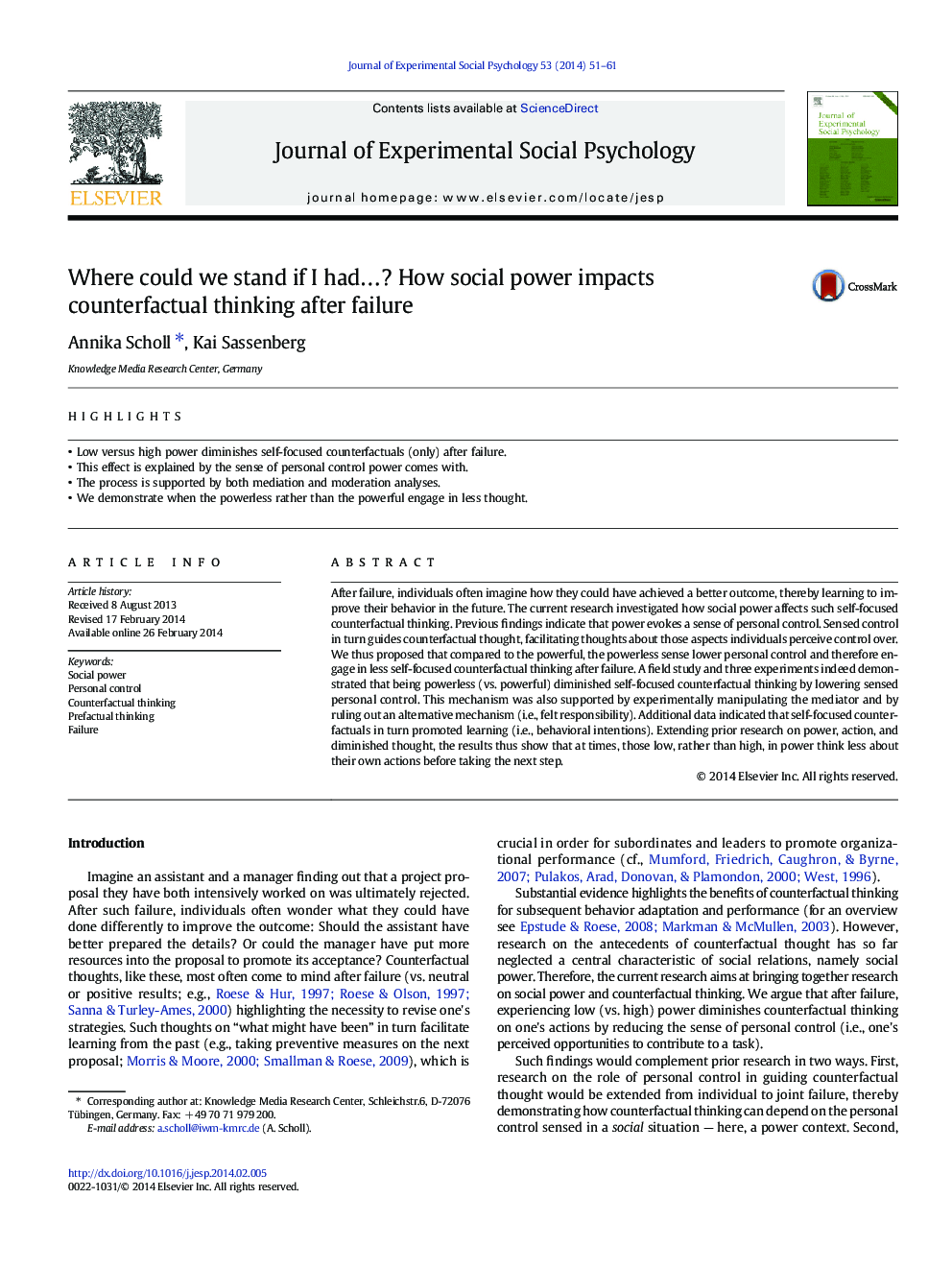| کد مقاله | کد نشریه | سال انتشار | مقاله انگلیسی | نسخه تمام متن |
|---|---|---|---|---|
| 947826 | 1475870 | 2014 | 11 صفحه PDF | دانلود رایگان |
• Low versus high power diminishes self-focused counterfactuals (only) after failure.
• This effect is explained by the sense of personal control power comes with.
• The process is supported by both mediation and moderation analyses.
• We demonstrate when the powerless rather than the powerful engage in less thought.
After failure, individuals often imagine how they could have achieved a better outcome, thereby learning to improve their behavior in the future. The current research investigated how social power affects such self-focused counterfactual thinking. Previous findings indicate that power evokes a sense of personal control. Sensed control in turn guides counterfactual thought, facilitating thoughts about those aspects individuals perceive control over. We thus proposed that compared to the powerful, the powerless sense lower personal control and therefore engage in less self-focused counterfactual thinking after failure. A field study and three experiments indeed demonstrated that being powerless (vs. powerful) diminished self-focused counterfactual thinking by lowering sensed personal control. This mechanism was also supported by experimentally manipulating the mediator and by ruling out an alternative mechanism (i.e., felt responsibility). Additional data indicated that self-focused counterfactuals in turn promoted learning (i.e., behavioral intentions). Extending prior research on power, action, and diminished thought, the results thus show that at times, those low, rather than high, in power think less about their own actions before taking the next step.
Journal: Journal of Experimental Social Psychology - Volume 53, July 2014, Pages 51–61
